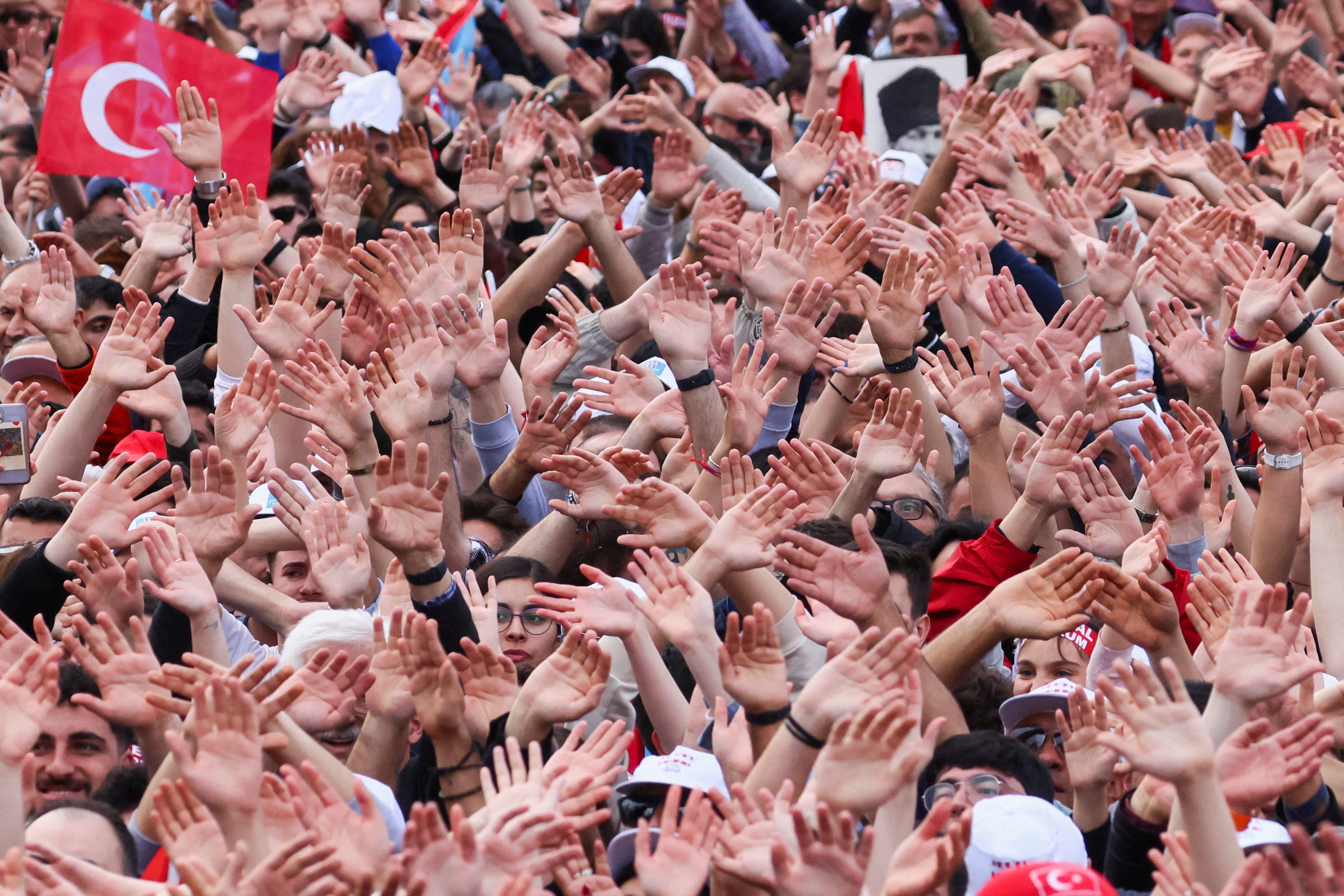Turkey's presidential election is almost surely headed to a runoff. With more than 99% of domestic ballots and 84% of overseas votes in on Monday, President Recep Tayyip Erdogan is just short of the 50% he needs to avoid a May 28 second-round contest with Kemal Kilicdaroglu, a technocrat who heads an opposition made up of six parties.
What's more, the president's Islamist Justice and Development Party also looks set to win a majority in parliament.
In an election that was widely viewed as a referendum on Erdogan's 20-year reign, a unified opposition alliance, surging inflation, a currency crisis, and scandals arising from devastating February earthquakes have made this race an uphill battle for Erdogan. But ahead of the vote, the incumbent pulled out all the stops to hold onto the job, including raising public workers' wages by 45%.
Erdogan has also used his increasing sway over the media to minimize his opponents’ exposure in recent months and has been accused of stacking the courts with loyalists and undermining his country’s democracy by marginalizing — and sometimes jailing — critics and independent-minded journalists.
Still, Turkey’s electoral institutions remain strong, and most analysts think the vote has so far been carried our freely.
This election is a big deal for several reasons. Turkey, a NATO member, is seen as a bridge between the Muslim and Western worlds, as well as a crucial conduit between Russia and the West. (Erdogan, for his part, has blocked Sweden from joining NATO, and has been crucial in negotiating a deal with Russia to allow Ukraine food shipments to travel through a safe passage in the Black Sea.)
Indeed, a change of leadership in Turkey would have big ripple effects across the world. While Erdogan this week accused the Biden administration of backing Turkey’s opposition, Kilicdaroglu has pledged to deepen relations with the West.
